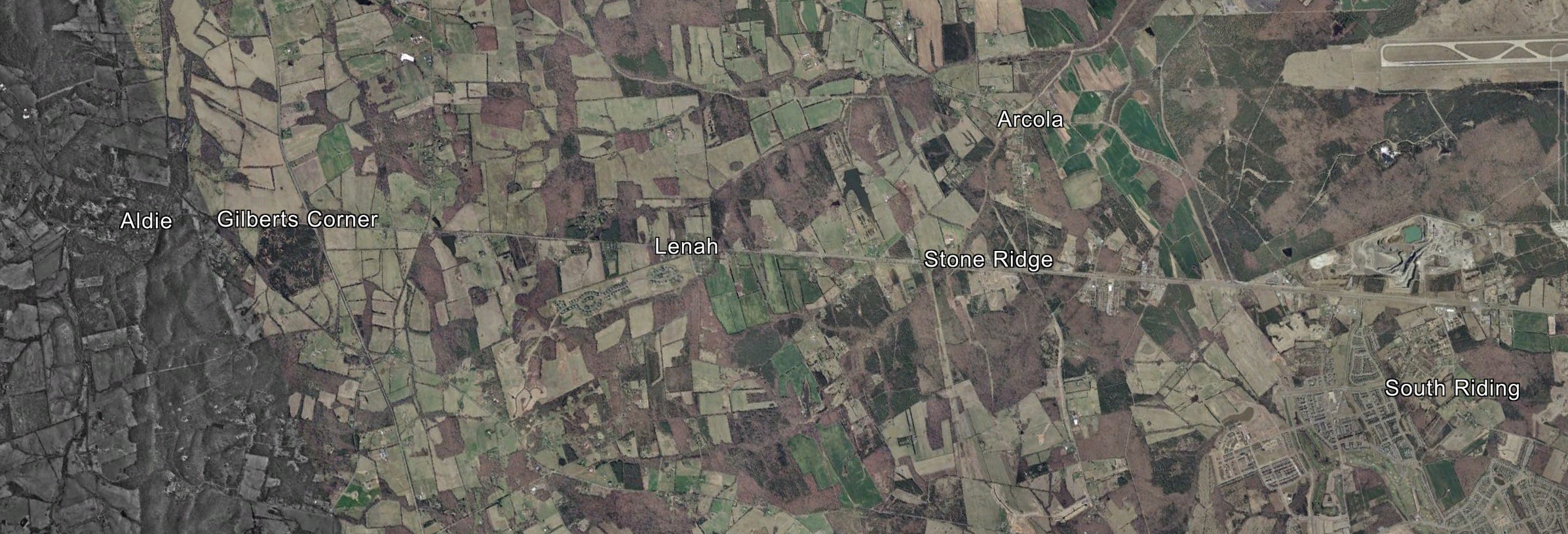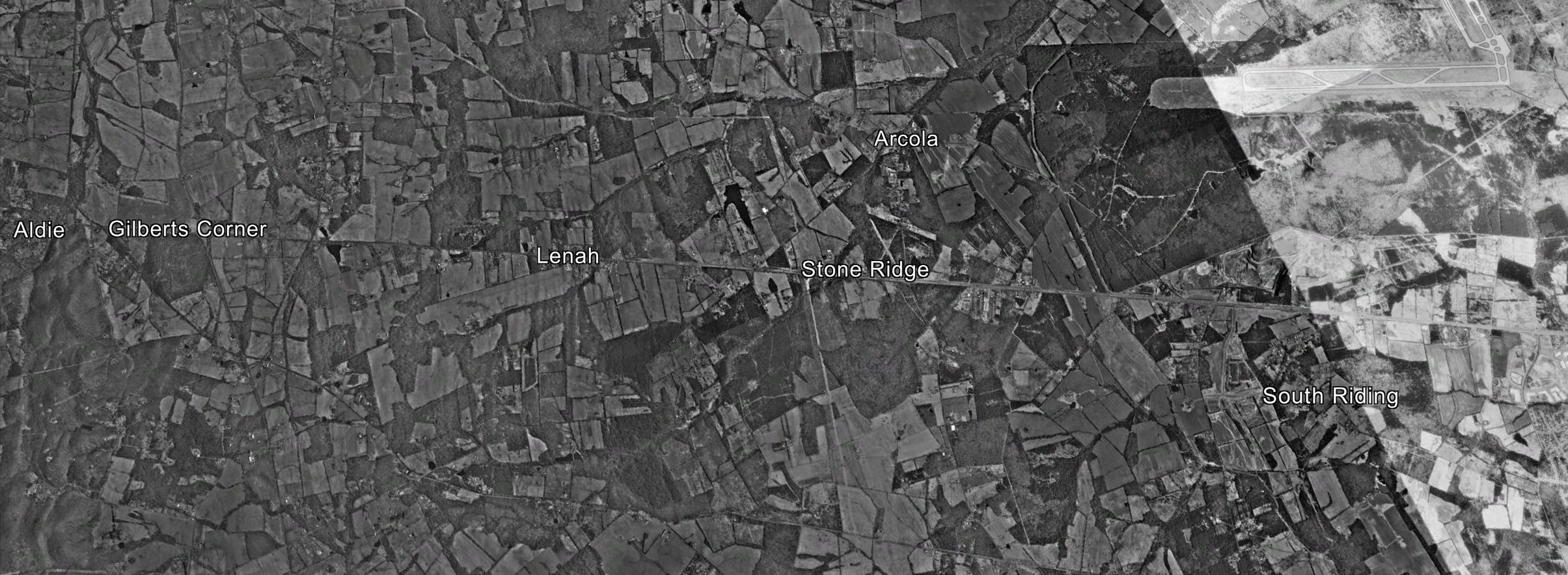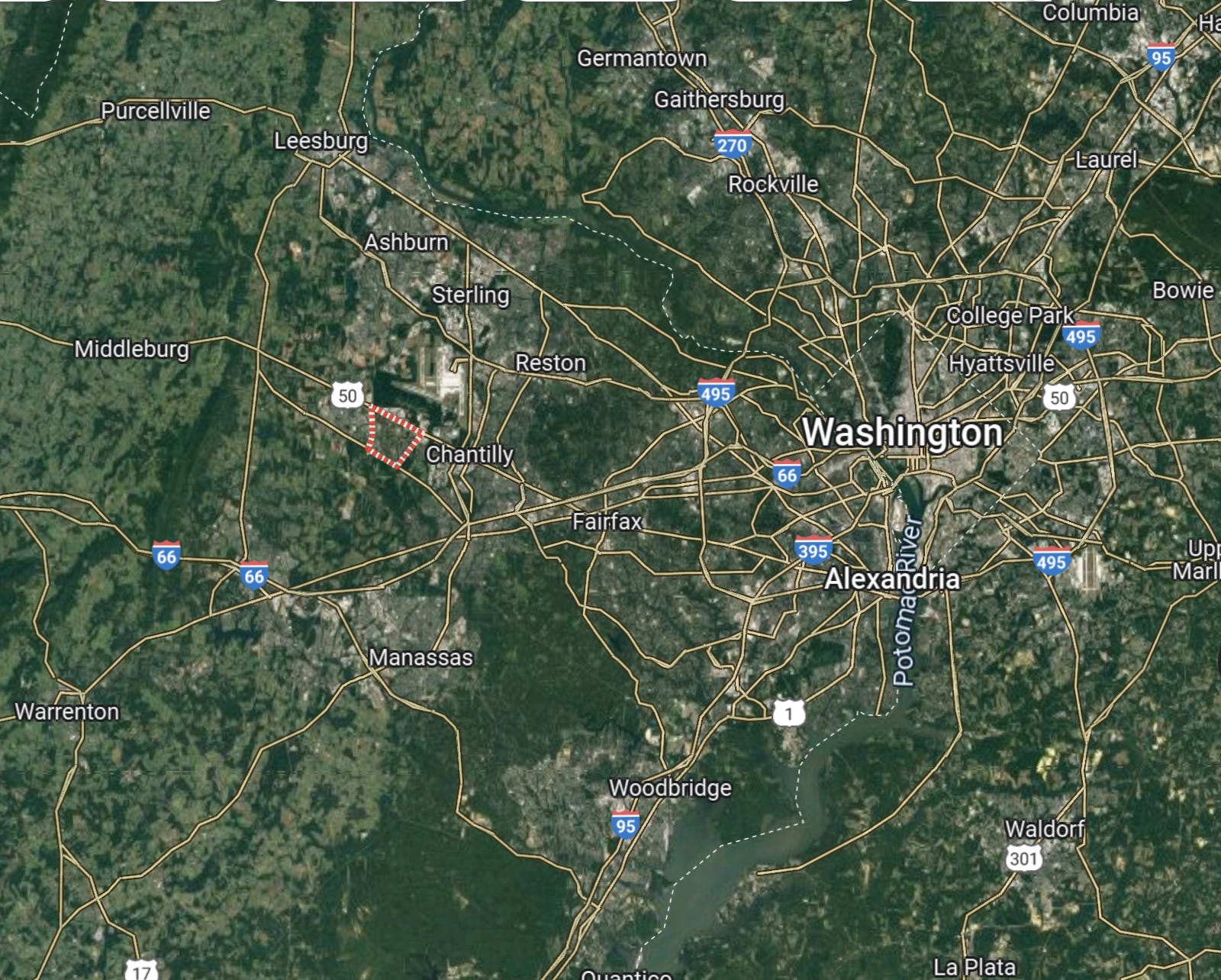The Deleted Scenes - Eating the Country
I wrote the other week:
I say this sort of thing all the time; in this particular case it was inspired by a little drive I took out to Berryville, Virginia, then Paris, then back home to Herndon on U.S. 50. (If you don’t know this area, those places are, respectively: a small town, a tiny country village, and a suburban community.) I was really struck by the contrasts along the stretch of U.S. 50 I drove. Real, genuine countryside out west—small towns, horse farms, wineries—and then, just east of Aldie, another small town in eastern Loudoun County, you encounter about a 10-mile stretch of what you might call transitional land use—ruined but still very sparsely developed former countryside. I did this same drive in 2019, and I saw the same thing. But the “edge” of the development has moved noticeably west just in those four years. U.S. 50 was being widened yet again between these awful traffic-choked newly signalized intersections. We aren’t even talking about large-lot zoning and fancy houses along here. These are expensive but pretty standard suburban houses, pretty much right on top of each other, placed wherever developers could buy a good-sized parcel. There are some data centers and, I think, a warehouse somewhere along this stretch too, thrown in for color I guess. It’s a dreadful landscape. A little side note here: one thing that strikes me is how these landscapes lack any of the texture or human interest of the old commercial strips that we tried to remediate in the 1960s under the notion of “highway beautification.” Like “urban renewal,” this was a misnomer and a euphemism. We managed to make our roadside landscapes more boring, and more hostile to small, informal enterprise, without actually reforming the system of car-oriented separated-use zoning at the heart of the problem. Anyway. That visual, seeing development creeping west in just a few years—seeing countryside transforming into the most stultifying sort of suburban sprawl almost in real time—was striking. And, as it happens, Google Earth allows you to see it. Here are a series of images of the same roughly 10-mile stretch of U.S. 50, with the village of Aldie at the left (west), and the planned community of South Riding on the right (east). The odd bit on the top right is part of Dulles Airport! Here is what this all looks like today. The “edge” is now between the places marked Gilberts Corner and Lenah: Here’s just 2010: The year 2000, where a single stray development by Lenah is just about the only subdivision-style housing west of South Riding: And 1995, before South Riding, now a community of 30,000 people, was built: This is all Loudoun County. But if you go back to the 1980s, most of Chantilly, in western Fairfax County, was pretty much undeveloped. You get the idea. To orient you fully, here’s the whole D.C. area, with South Riding marked in the dashed red line: This is pretty far away from the urban core, as are many of the region’s fast-growing communities. And in just the last 25 years, just along this corridor of U.S. 50, we lost almost 10 miles of countryside. And instead of this low-density pattern being the first step in building some sort of real place out here, it’s the first and final draft, which just keeps replicating horizontally. As I’ve written before: some of this housing is affirmatively desired, i.e. people really want to live here, exactly like this. But for many people, these houses are a kludged-together “solution” to the fact that housing is underbuilt and overpriced in the urban core and inner suburbs. Of the same phenomenon in Maryland, I wrote:
In other words, these subdivisions out in Loudoun County are—or at least follow directly from—the housing crunch further in. Unbuilt townhouses, duplexes, condos, or apartments in Alexandria and Arlington become townhouses or subdivision houses out here. This is not intended or planned, per se. But it follows from the way we do, or don’t do, land use at a regional level, with the understanding that growth is going to occur and must be accommodated. As I say in the pull quote above, this is going to happen. The question for land use planning in a place like the D.C. metro area is not whether or not we will grow, but what form that growth will be allowed to take. Where, not whether. And if we pretend it is “whether,” we get the “where” wrong. Related Reading: Thank you for reading! Please consider upgrading to a paid subscription to help support this newsletter. You’ll get a weekly subscribers-only post, plus full access to the archive: over 700 posts and growing. And you’ll help ensure more material like this! You're currently a free subscriber to The Deleted Scenes. For the full experience, upgrade your subscription. |
Older messages
The Old Normal
Wednesday, June 28, 2023
What "YIMBY" and "housing advocacy" are really about for me
In the Beginning
Tuesday, June 27, 2023
What Do You Think You're Looking At? #116
When I Say "City," You Say...
Monday, June 26, 2023
A brief low point in American urbanism became an anti-urban ideology
Anti-Social Media
Saturday, June 24, 2023
Only real life is real life
New and Old #115
Friday, June 23, 2023
Friday roundup and commentary
You Might Also Like
*This* Is How To Wear Skinny Jeans Like A Fashion Girl In 2025
Wednesday, March 12, 2025
The revival is here. The Zoe Report Daily The Zoe Report 3.11.2025 This Is How To Wear Skinny Jeans Like A Fashion Girl In 2025 (Style) This Is How To Wear Skinny Jeans Like A Fashion Girl In 2025 The
The Best Thing: March 11, 2025
Tuesday, March 11, 2025
The Best Thing is our weekly discussion thread where we share the one thing that we read, listened to, watched, did, or otherwise enjoyed recent… ͏ ͏ ͏ ͏ ͏ ͏ ͏ ͏ ͏ ͏ ͏ ͏ ͏ ͏ ͏ ͏ ͏ ͏ ͏ ͏ ͏ ͏ ͏ ͏ ͏ ͏ ͏ ͏
The Most Groundbreaking Beauty Products Of 2025 Are...
Tuesday, March 11, 2025
Brands are prioritizing innovation more than ever. The Zoe Report Beauty The Zoe Report 3.11.2025 (Beauty) The 2025 TZR Beauty Groundbreakers Awards (Your New Holy Grail Or Two) The 2025 TZR Beauty
Change Up #Legday With One of These Squat Variations
Tuesday, March 11, 2025
View in Browser Men's Health SHOP MVP EXCLUSIVES SUBSCRIBE Change Up #Legday With One of These Squat Variations Change Up #Legday With One of These Squat Variations The lower body staple is one of
Kylie Jenner Wore The Spiciest Plunging Crop Top While Kissing Timothée Chalamet
Tuesday, March 11, 2025
Plus, Amanda Seyfried opens up about her busy year, your daily horoscope, and more. Mar. 11, 2025 Bustle Daily Amanda Seyfried at the Tory Burch Fall RTW 2025 fashion show as part of New York Fashion
Paris Fashion Week Is Getting Interesting Again
Tuesday, March 11, 2025
Today in style, self, culture, and power. The Cut March 11, 2025 PARIS FASHION WEEK Fashion Is Getting Interesting Again Designs at Paris Fashion Week once again reflect the times with new aesthetics,
Your dinner table deserves to be lazier
Tuesday, March 11, 2025
NY delis are serving 'Bird Flu Bailout' sandwiches.
Sophie Thatcher Lets In The Light
Tuesday, March 11, 2025
Plus: Chet Hanks reaches new heights on Netflix's 'Running Point.' • Mar. 11, 2025 Up Next Your complete guide to industry-shaping entertainment news, exclusive interviews with A-list
Mastering Circumstance
Tuesday, March 11, 2025
“If a man does not master his circumstances then he is bound to be mastered by them.” ͏ ͏ ͏ ͏ ͏ ͏ ͏ ͏ ͏ ͏ ͏ ͏ ͏ ͏ ͏ ͏ ͏ ͏ ͏ ͏ ͏ ͏ ͏ ͏ ͏ ͏ ͏ ͏ ͏ ͏ ͏ ͏ ͏ ͏ ͏ ͏ ͏ ͏ ͏ ͏ ͏ ͏ ͏ ͏ ͏ ͏ ͏ ͏ ͏ ͏ ͏ ͏ ͏ ͏ ͏ ͏ ͏ ͏
Don't Fall for This Parking Fee Scam Text 🚨
Tuesday, March 11, 2025
How I Use the 'One in, One Out' Method for My Finances. You're not facing any fines. Not displaying correctly? View this newsletter online. TODAY'S FEATURED STORY Don't Fall for the




